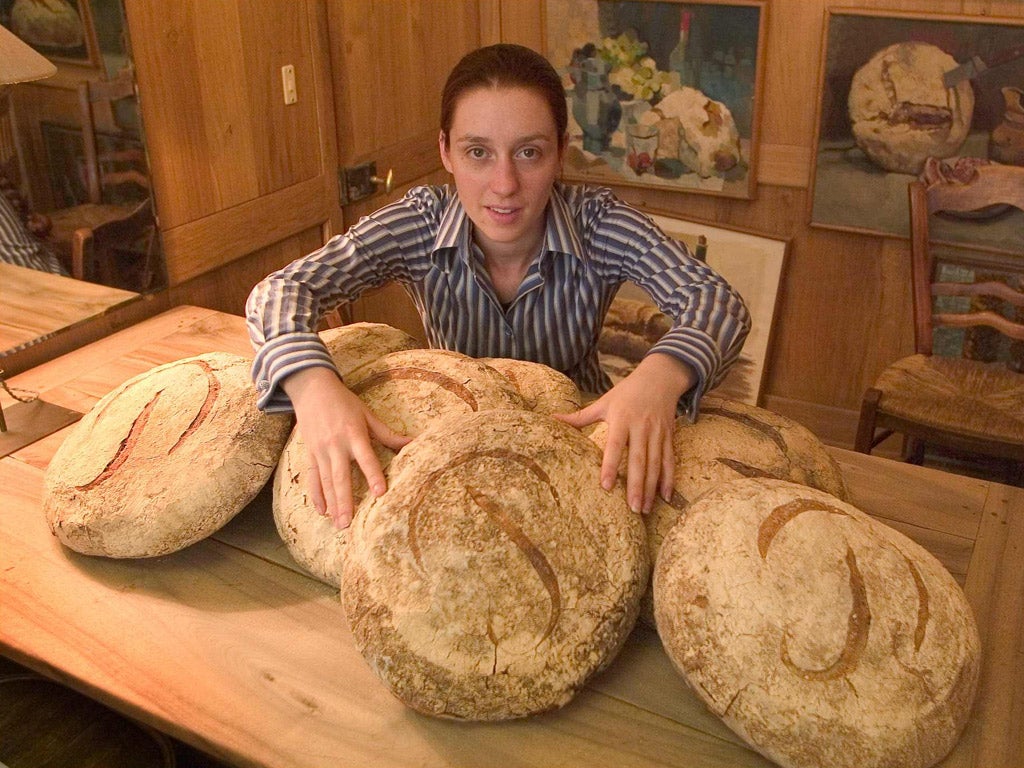
Your support helps us to tell the story
From reproductive rights to climate change to Big Tech, The Independent is on the ground when the story is developing. Whether it's investigating the financials of Elon Musk's pro-Trump PAC or producing our latest documentary, 'The A Word', which shines a light on the American women fighting for reproductive rights, we know how important it is to parse out the facts from the messaging.
At such a critical moment in US history, we need reporters on the ground. Your donation allows us to keep sending journalists to speak to both sides of the story.
The Independent is trusted by Americans across the entire political spectrum. And unlike many other quality news outlets, we choose not to lock Americans out of our reporting and analysis with paywalls. We believe quality journalism should be available to everyone, paid for by those who can afford it.
Your support makes all the difference.When both her parents died in a helicopter accident in 2003, Apollonia inherited her family's world-renowned bakery, Poilâne. She was just 19. Nine year's later, the company has a turnover measured in tens of millions of pounds and has most recently opened the cuisine de bar by Poilâne in London's Chelsea.
What are your most and least used pieces of kitchen kit?
I'm a baker, so naturally I have a great bread box. My father designed it to present bread at the table – I class that as a bit of kit. It sits on my counter and is always in use. I never really buy any equipment I don't need, so I don't have anything I don't use all the time. I read an article by Mark Bittman in the New York Times years ago about having a minimalist kitchen free of gadgets, and I try to keep to that.
If you had only £10 to spend on food, where would you spend it and on what?
Growing up, my parents were quite strict so there wasn't any junk food at home, so I wouldn't want anything like that. What I would want to buy is some good-quality bread. And some really good unpasturised butter, Beillevaire maybe. Just that simple combination would make me very happy.
What do you eat for comfort?
I love chocolate, that is my comfort, I'd say. My father was a member of the Chocolate Eaters Club in Paris so we always had lovely stuff at home. It set the bar very high. If I bought a bar of chocolate I would go for a fabulous dark bar. The best in France is a maker called Michelle Cluizel, it is wonderful stuff.
If you could only eat bread or potatoes for the rest of your life, which would you choose?
Bread. Definitely bread. It is my life, so I know the love and the six hours of work that goes into into making every loaf – to say nothing of the nine months of training a baker undertakes before they make their first loaf for sale. For me, everything from the crumb and crust is a balm for body and soul. I like potatoes, of course, but they aren't the same.
What's your desert-island recipe?
It's a really simple one with, unsurprisingly, bread and cheese. Take bread crumbs you have left in your bread bin and put them in a pan with any leftover cheese you might have and melt it all together, adding cumin seeds as it all melts. Now simply serve on toast. It is a recipe that I love and it's a great way of recycling your leftovers.
What's your favourite restaurant?
I really like Hélène Darroze at The Connaught. She's my neighbour in Paris, her restaurant is by my bakery. So I go in for dinner sometimes. When they are in season, she has the most fabulous white-truffle desserts. In London, though, I like how she combines her experience and like of French products and mixes them in with local food – it makes for a truly happy mix.
What's your favourite cookbook?
I love Paul Bocuse's book, Bocuse in the Kitchen. In it, he works his way through traditional French cuisine in a very simple and accessible way. When you've finished a recipe you feel fulfilled – like you have come to grips with the dishes. When I read it I feel I can relate to how my ancestors used to cook.
Who taught you to cook?
When we were young, my sister and I were sent to a neighbour in Paris who taught us the basics of cooking. She was very good and we learnt lots. But I really learnt about food, learnt to love food, from my parents – they were the inspiration for that, almost entirely. And from them, of course, I learnt about bread, too.
Join our commenting forum
Join thought-provoking conversations, follow other Independent readers and see their replies
Comments